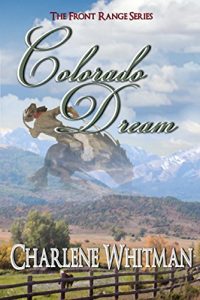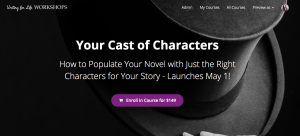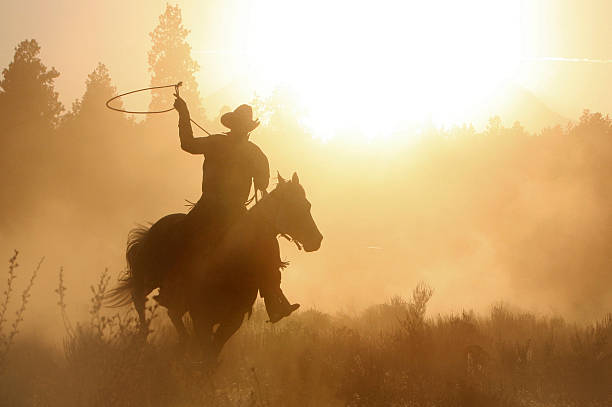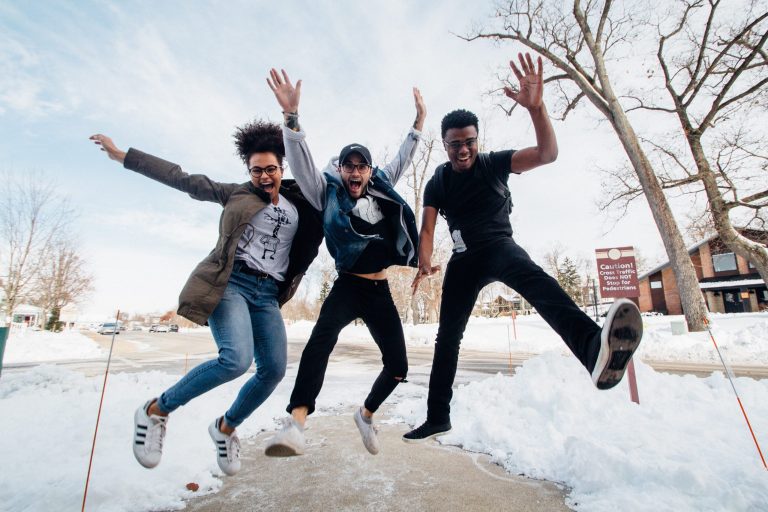Coming Up with Antagonists for Your Novel
Last week we took a brief look at secondary characters who play a supporting role in your novel—who help bring out the good qualities and personality of your protagonist. It’s common to find two or three unique characters who are allies to your hero.
But, of course, conflict is key in a novel, and you need opposition. That can come in the form of one specific antagonist or nemesis character. But it can also be a group or society or the system. If your novel is about man vs. nature, your opposition might be a tornado or an earthquake.
Regardless of your plot and type of opposition, unless your story is about a person isolated from others, you will need a supporting cast. And that usually includes antagonists.
I gave some passage examples last week from my Western novel Colorado Dream (I write under the pen name Charlene Whitman for that series). We looked at two characters who provide humor and support for my protagonist, Brett.
Here’s a moment with my two secondary antagonists—the cowboys sent to kill Brett. You’ll notice I give Phineas, who doesn’t have a large role in my story, a lot of inner conflict. This sets him up to switch sides in the climax. I left out some paragraphs to trim this down for you.
Phineas Frye took a long pull of his beer, then wiped the foam from his moustache as he scowled, looking out the window of the empty saloon that faced the flour mill sitting like a lump of clay in the hot sun. Heat simmered on the rough wide dirt lane called Main Street in this sorry excuse for a town. Loveland. What was to love about it? There were only two stores, no railroad, and a measly hotel that even fleas wouldn’t dare spend a night in. He scratched his neck, which itched something fierce. Probably all those fleas were in the saloon, nursing their cares on unsuspecting visitors.
“I still don’t git why Boss sent us ta go find that Hendricks fella. He could be halfway to Mexico by now. We don’t even know he went north.”
Isaiah Cummings combed his fingers through his thick red beard. “Don’t I know it? I told ‘im half as much. But’s he’s got a burr in his craw.” He fingered his vest pocket and pulled out his rolling papers and pouch of tobacco. “Listen, we’ll make the rounds, then report back—like he told us. Boss knows it’s a snowball’s chance in hell we’ll git word of ‘im.”
“Roundup’s inside o’ two weeks. If that buster didn’t hoof it back to Texas, he’d prob’ly joined some outfit here in Colorady.” Phineas upended the glass and gulped down the dregs of his beer. The barkeep was nowhere in sight, so he plunked down a coin on the stained and peeling counter.
He thought on Boss’s face yesterday when he told them to pack up and go on the scout for Hendricks. He could still hear the gruesome crack of the kid’s back when his horse dumped him onto those rocks. It was some miracle Wade was still alive. Yeah, but what kinda life c’n he have? Better off if he’d died. Orlander loved that kid—and spoilt him thoroughly—though, if truth be told, Phineas reckoned Wade’d had it coming. … He’d had a knife to that Mexican girl’s throat, and the terror in her eyes had made Phineas want to spit. But he did what the kid ordered—stood guard to let his boss’s kid ravish that poor gal.
He ground his teeth as he ran his finger over his moustache again and again, thinking. But there was nothin’ for it. He’d had to lie to Boss to cover for Wade—again. When Orlander had questioned them that night, Phineas had toyed with blurting the truth, once and for all—for it distressed him something awful to hold all that inside—but he reckoned it was too late. What good would it do? Not like Orlander would punish his kid—not now nor ever. Living the rest of his life in a chair was God’s punishment enough, weren’t it?
“What’s got you so deep in thought?” Cummings cast a sideways look at Phineas as he stood to his feet and struck a match along the top of the counter and lit his cigarette. A hand mindlessly wandered to his shoulder to rub it. He’d been Boss’s wrangler for years, but a rough fall had messed up his back, and he’d been relegated to riding point for the outfit most times, instead. Phineas got along fine with the fella, but it irked him some to see the way Cummings smirked and got pleasure off of watching the kid do his dirty business, though Cummings never said a word about it ….
He thought on the Hendricks fella, and how the instant he caught sight of Orlander, he went on the attack, swinging hard out the gate. Downright admirable. The right thing to do, and hardly a few fellas would dare risk a fight—’specially not over some Mexican gal’s honor.
 Phineas pushed back his stool and stood, then grabbed his hat off the nearby stool and stuffed it on his head. “Where to now?” he asked. It hadn’t taken them long to suss out that Hendricks hadn’t come this way.
Phineas pushed back his stool and stood, then grabbed his hat off the nearby stool and stuffed it on his head. “Where to now?” he asked. It hadn’t taken them long to suss out that Hendricks hadn’t come this way.
“Well … Fort Collins’s to the north o’ here. Plenty of outfits runnin’ around the Powder River and north o’ the Platte.”
“Still, we’ll be meetin’ up with most of ’em in the roundup, more’n likely.”
Cummings sucked in a long draw from his cigarette, then blew out the smoke. “I know it. But Boss wants—”
“Boss wants, Boss wants … He wants that Hendricks fella to pay.” Cummings nodded. “So let’s git.”
He followed Cummings out the saloon door over to their horses tied up in the shade around the side of the building. The air was hot and thick and damp from the Thompson River flowing down the hogbacks at the edge of the town. … Here he was chasing down the fella, so’s that Boss could put a bullet through his head. It just weren’t right, no sir.
Well, he thought as he untied the reins and swung up on his horse, maybe we’ll get lucky and find ‘im. For then, he might get the chance to warn the fella. Yep, that’s what he’d do. His ma had taught him that it was never too late to do the right thing. She’d also taught him and his brother about sins of omission—that’s what she called them—and he shoulda followed her advice long ago. Phineas had stood by way too many times doing the wrong thing, and his sins were piling up to where they haunted his sleep. A body could lose his life at any time, ‘specially in cattle country, and he’d put off too long making things right with his Maker. Yep, that’s what he’d do—warn the fella.
With that resolved, Phineas put spurs to flank and galloped down the main street of the sorry excuse for a town, headed north for Fort Collins.
Not every writer goes deep into POV with secondary characters, but I feel it adds richness to the story. I learned much from mystery writer Elizabeth George, and one thing in particular is that presenting deep, conflicted secondary characters makes novels soar.
Because I came up with the idea of having one of the “bad guys” flip to help Brett in the big “shoot-out” at the climax, I set up that earlier scene with Phineas to show his reticence to kill Brett.
Watch what Phineas Frye does in the climax (this scene is shown from the heroine, Angela’s, POV):
Mr. Orlander was shaking his head in a furious manner. George made a noise of irritation. His sympathetic gaze told her he believed Brett’s story and didn’t like the angry rancher one bit.
“I rode hard, headin’ north, but a fierce wind kicked up. I couldn’t see for all the dust, but I heard ‘em ridin’ after me. When they caught up, I stopped. They tol’ me to git down off ma horse, and they held their guns on me. So I got down.” He looked Mr. Orlander in the eye. “But jus’ as I made to git off ma horse, yer kid shot me in the leg.”
Orlander screeched. “I heard enough!” He got up into Brett’s face, Mr. Foster trying unsuccessfully to pull him back. “You’re a lyin’ son of a snake, and I’ll see ya dead—”
“He’s tellin’ the truth. The whole truth!”
Everyone turned at the sound of the loud, gravelly voice coming from an alcove off to Angela’s left. A large balding man in a long brown coat came striding toward the center of the room, a deep frown etched on his bearded face.
“Frye!” Mr. Orlander said in a growl. “What do ya think you’re doin’, ya stinkin’ traitor? Ya just ‘bout got Cummings killed. And mebbe ya did. I don’t see him anywheres.”
Just then a young skinny cowboy no more than sixteen came through the kitchen door, dragging a short, fat cowboy with a dark-red beard and bushy brows behind him at the end of a rope. The man’s hands were tied behind him, and he looked angry enough to strangle someone.
“Is this who you’re lookin’ fer?” the young man asked in a high, squeaky voice.
“Cummings!” Orlander said, his visage one of utter disappointment and chastisement.
“Them two—they were the ones chased me, along with yer kid,” Brett told Orlander. But he studied the one called Frye. No doubt Brett, like everyone else in the room, was wondering why the man was speaking up on Brett’s behalf.
Frye stopped in front of Orlander, blocking him from Brett. “I didn’t speak up—on account o’ Wade being hurt like he was. But I’m speakin’ up now, Boss. This here buster—he did right. Yer son”—he sucked in a breath and straightened tall—“is a piece o’ dirt. More times’n I c’n count, he’s taken advantage of defenseless women.” He scowled at the other cowboy called Cummings.
“I tried to look t’ other way. But it’s wrong—there ain’t no two ways ’bout it. ‘N’ while I ‘preciate my job and all the consideration ya shown me all these years, I cain’t, in good conscience before the Good Lord, keep ma trap shut no longer.” He took in a deep breath and added. “That’s the God’s honest truth.”
He looked over with sheepish eyes at Brett. “I’m sorry, Hendricks. I shoulda tol’ Boss the truth. I feared for my job. ‘N’ that weren’t right o’ me. I shoulda spoke up years ago, when that kid started in on his bad behavior. Maybe a good whippin’ woulda taught ‘im a lesson and spared some o’ those women he mistreated.”
Orlander stood aghast, his mouth open wide, like a fish out of water. He looked at the other cowboy, whose twisted features attested to the truth of Mr. Frye’s words.
“An’ it weren’t this fella here that shot first. After Wade shot ‘im in the leg, he got back on ‘is horse. The dust was so thick, ya couldn’t see a derned thing. Hendricks fired off a couple o’ blind shots—so’s he could git away—an’ I’d’a done the same. One o’ them bullets grazed Wade’s horse, and it reared up and tossed ‘im into some rocks. That’s how come he hurt ‘is back.”
Orlander snorted air out of his nose like a horse, but Angela noted the defeat on his features. In a strange way, she felt sorry for him. How awful it must have been for him to hear the truth about his son. But that in no way excused his violent actions. Her shoulders slumped in relief as Foster’s cowboys took Orlander’s three gunmen in hand, after getting them to their feet, and escorted them out the double doors that led to the foyer. No doubt Mr. Foster would inform the sheriff of what had transpired.
Pay attention to this great plot device. Having characters change roles, switch alliances, can make a story great. We love to see the hero vindicated by having prior antagonists become allies because they want to be on the right side of history. We cheer for them, whether they’re primary or secondary characters!
I often think of my favorite movie, Strictly Ballroom, and the big dance competition at the climax of the movie. Scott’s competitors who criticized him for breaking the rules and dancing his own steps at the Grand Prix Pan Pacific rally by his side when it becomes evident those in authority are cheating and have to be exposed.
Don’t dismiss the value of secondary characters. They add so much to a story. But everything they do must serve the plot and tie in with the protagonist’s pursuit of his goal. And the same applies to incidental characters, which we’ll dive into later.
Do you have an antogonist in your story who is conflicted? Who maybe changes loyalties by the end of your story? Are you setting up his inner conflict early on? Share some thoughts in the comments!
NEW! Announcing my new online course: Your Cast of Characters
Learn all about creating the perfect cast for your novel in this new online video course. The course launches MAY 1, 2020, but you can enroll now and get $50 OFF the regular price by using coupon code EARLYBIRD. Sign up HERE at my online school. Remember: you CANNOT access any of the modules until May 1. I’ll be sending you an email at that time to let you know the doors are open!
 Your characters are the heart of your story, so be ready to learn a lot of great tips. BONUS! Included in your course are interviews with best-selling authors, who discuss their process of how they come up with the best characters for their stories. You can’t find these videos anywhere else but in my new course.
Your characters are the heart of your story, so be ready to learn a lot of great tips. BONUS! Included in your course are interviews with best-selling authors, who discuss their process of how they come up with the best characters for their stories. You can’t find these videos anywhere else but in my new course.
And remember: you have lifetime access to all my courses at cslakin.teachable.com, and you also get a 30-day money-back guarantee, always. I want you to be happy with the content you are learning. So …. no risk! And check out all my other online courses while you’re at it. Thousands of writers have taken these courses around the world and sing their praises.
Here’s some of what you’ll learn in this extensive course:
- What the basic types of characters are and what roles they play in a story
- How your plot and premise inform the characters you develop
- How to determine if a character is essential to your plot or just “filler”
- What kind of supportive characters does your specific story need and how you can determine that
- How to create characters that act as symbols
- What archetypes are and how you can utilize them to create fantastic characters
- How incidental characters can make or break your story
- Why understanding character motivation is paramount
These video modules feature numerous excerpts from novels, movie clips, and deep instruction. In addition, you are given assignments to help you develop a great cast of characters which you can download and do over and over as needed. Be prepared to learn!











